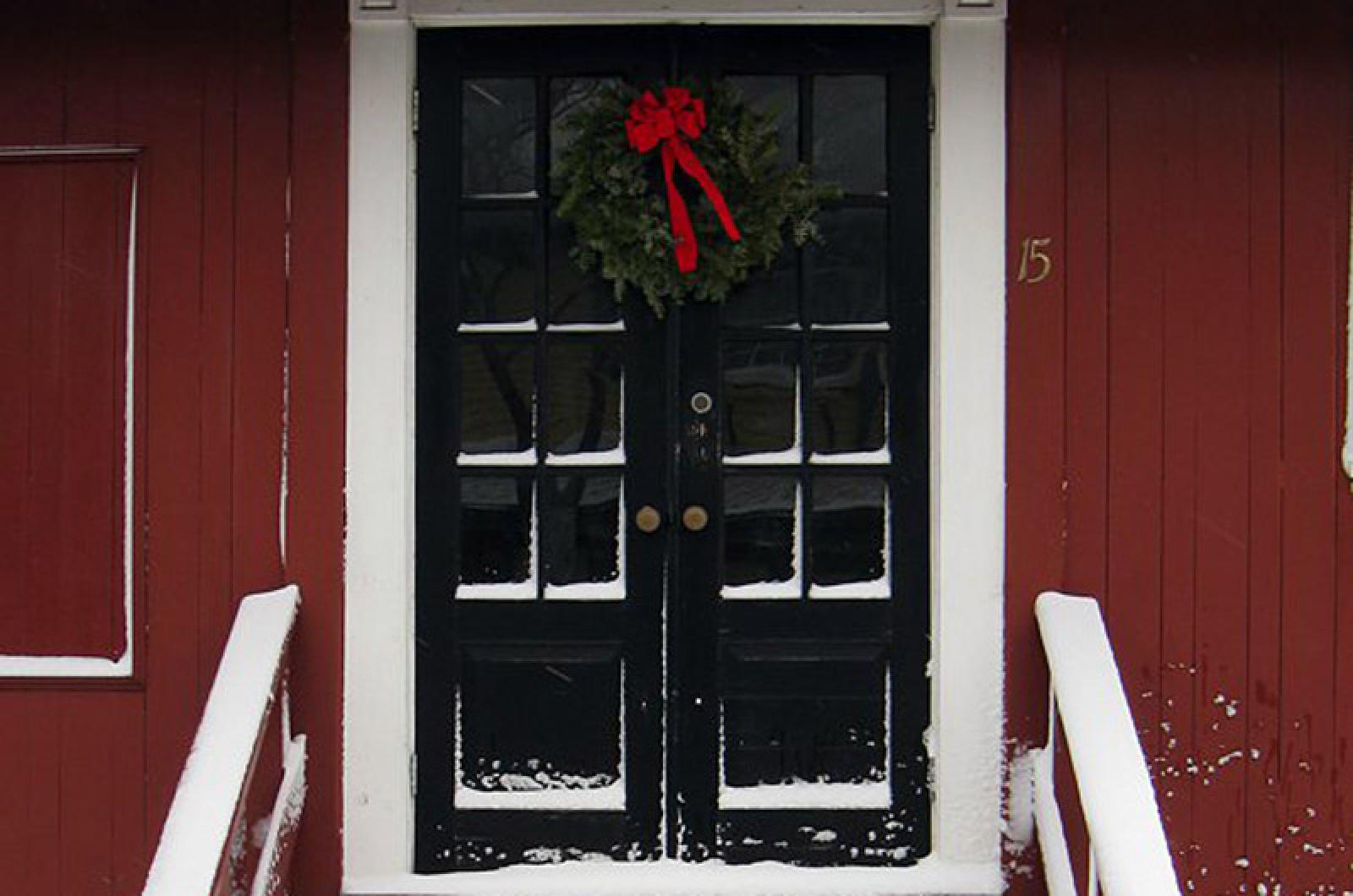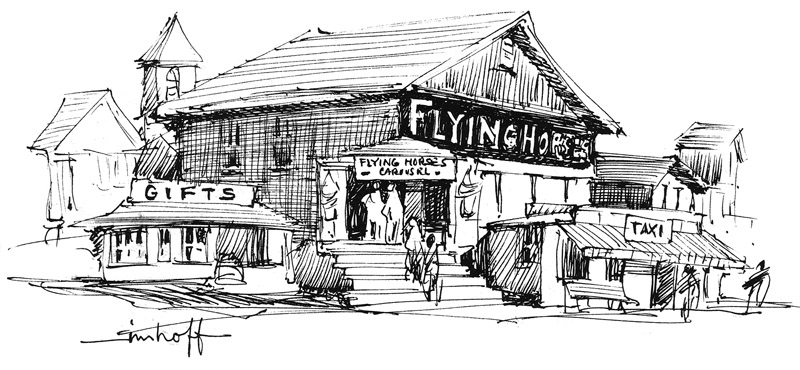From The Richer, the Poorer, by Dorothy West.
At Christmas there is giving, and in the happiest instances, giving with joy is part of it. This act of love is not a natural instinct. The baby never gives up anything unless the frailty of his fingers forces his greedy grasp to surrender to the strength of someone stronger.
The wanting to give is only learned by learning to love. Though Christmas is the occasion when love makes a spectacular showing, there are other times, on some quiet calendar day, when a gift is given that no money can buy.
There was such a time, on a summer day, at the Flying Horses. My niece and nephew were six and seven, and here in Oak Bluffs for the long holiday. Their mother sent them a weekly allowance, which they changed into silver, and kept in glass jars on my kitchen shelf.
The boy’s was gone by mid-week. I had to invent chores to help him exist until Saturday. His sister’s jar was never empty, it was often half-full. I did not see how one child could be so wasteful with money while the other led as full a life on so much less.
Every day we walked to the Flying Horses. When we were ready the children opened their jars, and took out whatever money they planned to spend. Their planning always included two rides on the Flying Horses.
The little girl would cross the threshold as if she were entering a sacred place. There was no one in the world of children to whom the Flying Horses brought such ecstasy. When she sat astride her favorite horse, her imagination took the reins and transported her to enchanted places. Her face reflected the wonders she saw in flight.
The little boy had one practical purpose in mind. In his whole life, as he phrased it, he had never caught a gold ring. That was his goal he set for himself the summer that he was seven. As he rode his horse, his determined hand outstretched, he was reaching for the solid feel of a real prize.
The girl had a voice like little golden bells. It was irresistible. If her brother bought himself a second ice cream cone before she had bought herself her first one, I would say to her protectively, Don’t you want one, too? The little golden bells would chime. I didn’t bring enough money.
I would promptly open my purse. It seemed unfair to punish her for her prudence, while he was eating his second cone as if cones were two for a penny.
The boy was as open as the day. He was spending his money in a perfectly acceptable way. I was helping his sister hoard hers by encouraging her to spend mine. It was almost summer’s end before I realized that I had let myself be beguiled.
I was firm thereafter, refusing to see my niece’s hopeful eyes searching my face when her brother spent his money while hers was snug at home. I was trying to teach her a lesson, and it was brother who taught her first, in a way far better.
That was the day he caught the gold ring on his second ride. He came running to me, his sister running behind him, both of them overwhelmed by his remarkable achievement. I praised him mightily. In his hand was his long-sought prize, a Flying Horse ticket for a free ride, the first time in his whole life that he would have three rides in one afternoon. I said, Run quick, before it starts.
He turned, then turned back and looked at his sister. He saw no envy, only awe. In her whole life she had never had three rides on the Flying Horses either.
He thrust the ticket into her hand. Here, Sisty, you can have it.
She stared at him unbelieving. She could never have given a Flying Horse ticket away. He was giving her one that he won with a gold ring. Her eyes filled with tears. My brother loves me, my brother loves me, she said. The golden bells had the sound of a heart running over.
That was the day she learned that all the money in her jar could not have bought that gift.








Comments (1)
Comments
Comment policy »